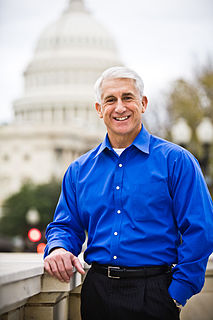A Quote by Michelle Alexander
The war on drugs has been the engine of mass incarceration. Drug convictions alone constituted about two-thirds of the increase in the federal prison population and more than half of the increase in the state prison population between 1985 and 2000, the period of our prison system's most dramatic expansion.
Related Quotes
Our current prison state has the dual effect of getting rid of a superfluous population of basically unskilled workers (with a close race-class correlation), and also demonizing them... The drug war is basically for this - It has nothing to do with drugs, but it has plenty to do with criminalizing an unwanted population and scaring everybody else.
Between 1995 and 2005, the prison population grew by 30 percent, meaning an additional half million criminals were behind bars, rather than lurking in dark alleys with switchblades. You can well imagine liberals' surprise when the crime rate went down as more criminals were put in prison. The New York Times was reduced to running querulous articles with headlines like Number in Prison Grows Despite Crime Reduction and As Crime Rate Drops, the Prison Rate Rises and the Debate Rages.
The prison industrial complex, to put it in its crassest term, is a system of industrial mass incarceration. So there's what you call bureaucratic thrust behind it. It's hard to shut off because politicians rely upon the steady flow of jobs to their district that the prison system and its related industries promise.
Barack Obama's understanding of what the drug war had cost the country was meaningful. And very quietly in his second term, he and Eric Holder did make some adjustments in terms of the use of the Department of Justice, on the federal level. You saw ratcheting back of drug prohibition, and mass incarceration. You also saw, on the part of some certain states, a realization that they followed the war on drugs to a useless place, that they were only doing damage to communities, and bankrupting budgets with prison construction.
Prison is quite literally a ghetto in the most classic sense of the word, a place where the U.S. government now puts not only the dangerous but also the inconvenient—people who are mentally ill, people who are addicts, people who are poor and uneducated and unskilled. Meanwhile the ghetto in the outside world is a prison as well, and a much more difficult one to escape from than this correctional compound. In fact, there is basically a revolving door between our urban and rural ghettos and the formal ghetto of our prison system.



































